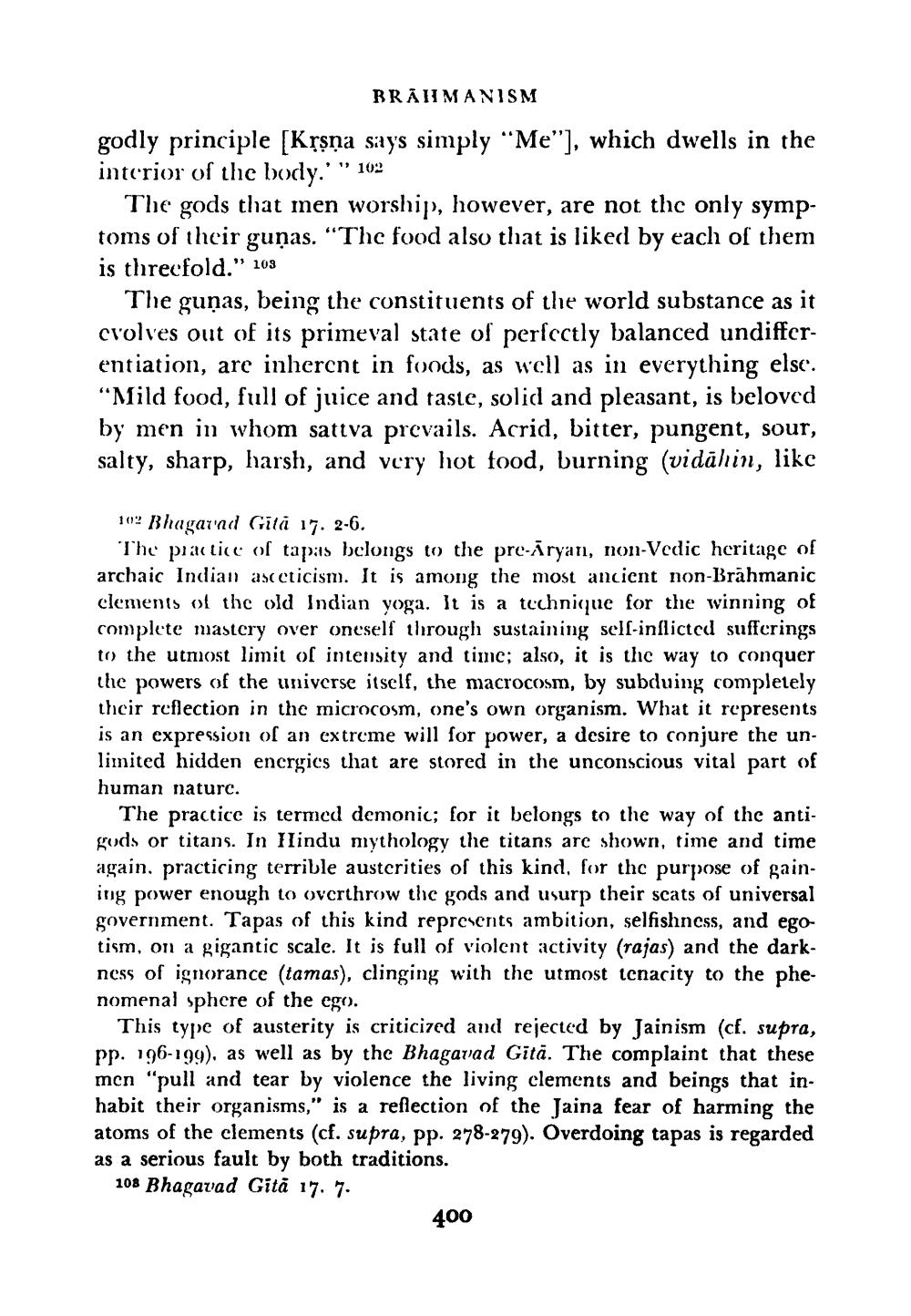________________
BRAHMANISM
godly principle [Krşņa says simply "Me"], which dwells in the interior of the body.' ” 102
The gods that men worship, however, are not the only symptoms of their guņas. "The food also that is liked by each of them is threcfold.” 103
The guņas, being the constituents of the world substance as it cvolves out of its primeval state of perfectly balanced undifferentiation, are inherent in foods, as well as in everything else. "Mild food, full of juice and taste, solid and pleasant, is beloved by men in whom sattva prevails. Acrid, bitter, pungent, sour, salty, sharp, harsh, and very hot food, burning (vidāhin, like
102 Bhagai'nd Gitá 17. 2-6.
The practice of tapts belongs to the pre-ryan, non-Vedic heritage of archaic Indian asecticism. It is among the most ancient non-Brahmanic clements of the old Indian yoga. It is a technique for the winning of complete mastery over oneself through sustaining sell-inflicted sufferings to the utmost limit of intensity and time; also, it is the way to conquer the powers of the universe itself, the macrocosm, by subduing completely their reflection in the microcosm, one's own organism. What it represents is an expression of an extreme will for power, a desire to conjure the unlimited hidden energics that are stored in the unconscious vital part of human nature.
The practice is termed demonic; for it belongs to the way of the antigods or titans. In Hindu mythology the titans are shown, time and time again. practicing terrible austerities of this kind, for thc purpose of gaining power enough to overthrow the gods and usurp their scats of universal government. Tapas of this kind represents ambition, selfishness, and egotism, on a gigantic scale. It is full of violent activity (rajas) and the darkness of ignorance (tamas), clinging with the utmost tenacity to the phenomenal sphere of the ego.
This type of austerity is criticized and rejected by Jainism (cf. supra, pp. 196-199), as well as by the Bhagavad Gitā. The complaint that these men "pull and tear by violence the living clements and beings that inhabit their organisms," is a reflection of the Jaina fear of harming the atoms of the clements (cf. supra, pp. 278-279). Overdoing tapas is regarded as a serious fault by both traditions.
108 Bhagavad Gitā 17. 7.
400




